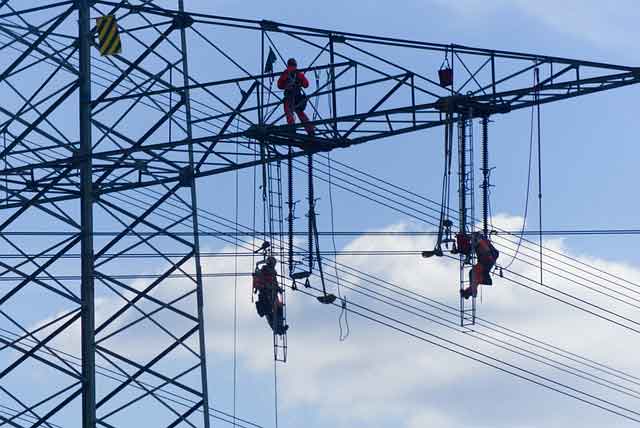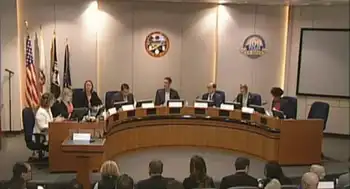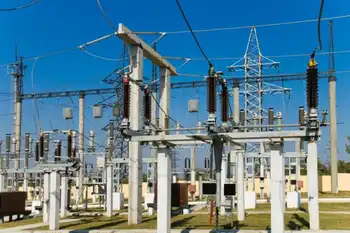Rebuit PSC begins hearings to probe electricity-rate rise
By Knight Ridder Tribune
NFPA 70e Training - Arc Flash
Our customized live online or in‑person group training can be delivered to your staff at your location.

- Live Online
- 6 hours Instructor-led
- Group Training Available
The Public Service Commission will began a week of hearings that will deliver on Gov. Martin O'Malley's campaign pledge to scrutinize conditions that led to the expected 72 percent rate increase for customers of Baltimore Gas and Electric Co. The commission also will consider BGE's proposal to allow its 1.1 million residential customers the option of phasing in a portion of the rate increase - estimated at 50 percent - that has yet to take effect. The five-member panel has a new chairman and two new members appointed by O'Malley, a Democrat who sharply criticized the previous commission's handling of the rate increase.
In the short term, the inquiry will do little to alter the direction of electricity rates in Maryland, which has only recently begun feeling the effects of deregulation legislation passed in 1999. But it lays the groundwork for a broader look at whether the state should reconsider deregulation as it looks for a way to mitigate rising energy costs. Legislation passed this year calls on the commission to review past decisions and study the structure of the industry, including whether utilities should again be allowed to own regulated power plants. The process will culminate in a series of reports a d recommendations to lawmakers that could affect energy prices for years to come.
The initiative lumps Maryland with a handful of states stretching from Delaware to Montana that are scrutinizing deregulated energy markets amid a consumer backlash against rising energy costs. "These hearings are designed to get at the factual basis for the proposed rate increase," said Steven B. Larsen, the commission's new chairman. "I think many people feel that the commission last year did not sufficiently peel back the onion to understan what was driving the rate increase and explain it to people." Last year's 72 percent rate increase was temporarily held to 15 percent, with the deferred amount to be paid back over a 10-year period with interest.
BGE customers are scheduled to pay full market rates in June unless they take part in a second deferra plan under consideration in this week's hearings. BGE has proposed giving customers the option of taking about half of the 50 percent increase in June, with the other half appearing bills in January. The deferred amount would be paid back with interest over two years. Customers who choose not to partic pate in the program will get the full increase in June. The Maryland Office of the People's Counsel, which represents utility customers before the PSC, has suggested a longer phase-in plan to give customers more time to adjust. "The key for us is to have a decision on the next phase of the rate deferral plan should customers choose that option," said Rob Gould, a BGE spokesman. As part of this week's hearings, Larsen and the commission also will study the method utilities use to buy power from wholesale suppliers. As part of deregulation, utilities gave up ownership of their power plants and began buying electricity from wholesale suppliers through a competitive bidding process. Some consumer advocates say the short-term nature of the power contracts and other flaws in the bidding process contributed to the size of the rate increase.
The PSC requires all investor-owned utilities to go into the market to buy power on predetermined days. Critics say that approach distorts the market and gives suppliers the advantage. Skip Trimble, an energy consultant with South River Consulting in Baltimore, compared it to requiring all car shoppers to buy on a specified day of the year. Car makers would go into the sale knowing they had a captive audience, leaving little incentive for them to lower costs or offer deals. Similarly, he said, the price BGE and other Maryland utilities received in last year's energy auction is 15 percent to 25 percent higher than the price South River was able to obtain for its energy clients during the same period.
The firm uses an altern tive "portfolio management" approach that takes advantage of dips in the market and other factors to obtain lower prices. A witness for the People's Counsel has advocated a new approach that would require utilities to plan power purchases over 10 to 15 years, resulting in less volatile energy prices. Each utility would manage a "portfolio" of long-, medium- and short-term ontracts, which advocates say would result in cheaper and more stable prices over time. Maryland isn't alone in scrutinizing its auction process. The state of Illinois blamed flaws in a similar energy auction for soaring energy prices among that state's utilities.
The Illinois attorney general filed a complaint last month with federal regu ators, asking them to investigate allegations of price gouging among wholesale suppliers. The complaint contains testimony from Robert McCullough, an energy consultant who said winning bids were 40 percent higher than prices available in the broader market at the time the Illinois auction was conducted. He said the bidding process in Maryland also yielded prices higher than those available in the broader market, though in his analysis the difference was less than half of that seen in Illinois. Larsen, the PSC chairman, said part of the commission's goal is to probe whether Maryland's power prices were based on "prudently incurred costs." "We're certainly going to focus on the wholesale auction process, which at this point is at the core of those (electricity) rates," he said.











